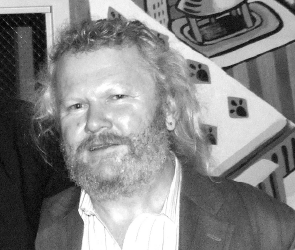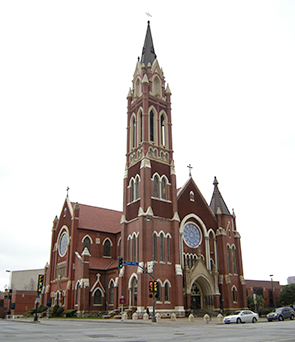By Thom Nickels
“Up in the air” is an apt description of the situation when it comes to the opening of Philadelphia’s restaurants and bars after the worst of the Covid-19 pandemic.

For Fergie Carey, the owner of four restaurant/bars in the city, the lockdown has been a time to spend time with his family. “I have dinner with my family every night. We watch movies, we play games.” He describes his time away from the restaurant scene, especially Fergie’s Pub, as not bad at all.
Still, having four restaurants floating in the sea of Non Being, is worrisome. Fergie says he’s used much of the virus sabbatical to refurbish and redo all of the woodwork inside the pub. “We’ve had all the floors refinished and the stairs refinished and the bar top refinished. The place has never been as clean in 26 years. The wood looks amazing. People will come back, walk in and say, “Wow, look at this!”
Fergie recalls what it was like back on March 12.
“I woke up on March 12 and heard that the NBA had cancelled its entire season. Then they cancelled hockey. I thought Oh my God, this is serious, this is huge.” He says he contacted his partners and managers and told them to put a stop to spending money. Saint Patrick’s Day was coming up, the biggest restaurant bar time of the year for the Fergie Center City empire.
“We were already in the works,” he said. “We put in these huge liquor and beer orders. That Friday night, the 13th, two great bands that we had scheduled to appear at the pub, canceled. One band held out but I think the band’s family members told them that they shouldn’t be doing the gig, so they backed out. It was also karaoke night, a big draw.
“Business that night was just one quarter of what it normally would have been leading up to Saint Patrick’s Day. Saturday night was the same.
“I got nervous when the pub wasn’t busy and I got nervous when it was. I kept thinking, ‘Is this safe? What do we do?’”
Turns out he and his partners opted to close Fergie’s and the three others businesses. The very next day a shutdown was ordered so he was ahead of the curve by hours.
Fergie says that the thought of going back to business with a shower curtain around each table, constant sanitization and little or no barstools in the pub doesn’t strike him as any sort of Utopia. “Basically to go back to only 25 percent of your business with a lot of restrictions and a lot of extra costs, well….”
He lets the sentence drift off, then repeats a news headline he read over the last several weeks: “Will the virus kill karaoke and open mike?”
His four restaurants were able to survive the lockdown thanks to the Payroll Protection Program, a so-called forgivable loan that allows employers to pay their employees when they are not able to work. The generous program provides two and a half times the amount of the monthly payroll with the stipulation that 75 per cent of it be spent on the payroll with the remaining 25 percent going towards rent and utilities.
“People are still making money,” Fergie adds, “It doesn’t feel like a Depression.”
On June 5, according to Governor Wolf’s reopening plan, Philadelphia County will move into the so-called yellow zone, which does not allow restaurants and bars to open. Although the pub has been doing a brisk take out delivery service since the lockdown, Fergie wants to increase take-out to his other three businesses.
His other plans include booking musicians to perform on the roof of the Pub to entertain guests on the street below. That plan is partially contingent on the city’s willingness to follow through on a plan to close off sections of Samson Street to traffic so that area restaurants can create a Tented Village.
“Our own business association and the Mid-Town Village Merchants Association has been looking into this idea with some City Council people,” Fergie said. “We’re thinking that the block of Samson between 12th and Juniper and 13th between Walnut and Chestnut could become this TentedVillage with picnic tables. This is the way we are going to survive. This could really turn into something beautiful. We could make it fun and have it as our fall festival every year. Of course, a thing like this could become too popular and attract 25,000 people.”
In an unexpected move on May 26, preempting June 5 as Philadelphia’s entry into the yellow zone, the Philadelphia Business Journal reported that the City of Philadelphia would allow mobile food vendors and restaurants to offer walk-up ordering, “effective immediately.”
“Philadelphia Mayor Jim Kenney amended business closure and stay-at-home orders this week, which will permit up to 10 people to line up to order at restaurants and food establishments. Dine-in service is still prohibited, and face coverings and social distancing guidelines are required,” Kenney said, The Journal reported.
As of May 26, only 97 new cases of Covid-19 were recorded in the city, a radical drop from April’s 500-plus caseload.
Although Fergie looks forward to getting back on his feet, his mind drifts back to the pub’s ever popular Friday karaoke nights, when “there were three guys on stage and everyone who wants to sing, sings to a packed house. Will we ever get back to that again?”
What about Churches?

In Dallas, Texas, a large group of Catholics protest weekly outside that city’s cathedral. They pray the rosary and protest the bishop’s decision in that city to keep Catholic churches closed.
Opinion in the Catholic World is divided on the subject. On one hand you have people like Fr. James Marin, editor-at-large of America Magazine, who urge caution when it comes to reopening churches. Fr. Martin, an advisor to Pope Francis, takes the opposite view of more traditional Catholics who feel that the supernatural always comes before the natural, and that the government should not be able to tell bishops what to do.
They cite Saint Ambrose, who challenged the Roman emperor when the latter attempted to enter church for Mass, after committing a great public sin. St. Ambrose told the emperor that he was not allowed to attend Mass unless he confessed his sins. As this case in history illustrates, the emperor obeyed the bishop, in effect becoming the bishop’s humbled servant in the spiritual realm.
Many Christians resent the fact that churches were perceived as non-essential by the government. They believe that they had no say in their governance, and say that government needs to be responsive to the will of the people. The lockdown, they claim, has created a TSA all over the place. Catholics especially feel that their church leaders, the bishops, should have been consulted before the lockdown.
Dr. Taylor Marshall, a convert from the Episcopal Church, and a renowned You Tube personality, feels that U.S. Catholic bishops have taken the low road of blind obedience to the powers that be. “Some of them are saying: Catholic Church, non-essential while Sam’s Club, grocery stores, are all essential. Liquor stores are essential, Planned Parenthood is essential but the Church is not essential. That’s wrong.”
Wherever you stand on the subject, the question many are asking is: What would a reopened Catholic Church look like?
A survey of several Catholic churches online, spelled out the plan. Parishioners would be advised to stay home and not to attend Mass if they exhibited signs of the virus or if they were sick.
There would only be one entry to the church. Everyone entering would be greeted by an usher who would show you your seat, all seats having been mapped out beforehand in acceptable social distance patterns. At the Sign of Peace there would be no hugging but only waving and verbal greetings. An elaborate RSVP system would be set in place whereby parishioners would select their Mass time, stating the number of people in their party. In case of an overflow of Mass requests, pop-up Masses would be added to the Sunday roster.
Communion would be distributed under one form only: the host. Communion in hand would be the normal practice here. Holy water and baptismal fonts would not be in use. Hymnals would not be made available. One Catholic church suggested that worshippers access online worship aids or bring their own worship book. Confession would be by appointment only.
